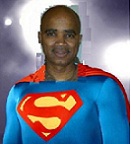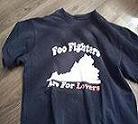Duane Sampson
Posts: 14200
Status: offline

|
Dying Young, Black By Michael Wilbon Wednesday, November 28, 2007; Page E01 If you're hoping to read about the on-field exploits of Sean Taylor, or a retrospective of his time with the Washington Redskins, it would probably be better if you cast your eyes to a piece elsewhere in this newspaper. Seriously, you should stop right here. Because we're going to have a different conversation in this space -- about the violent and senseless nature of the act that took his life, about trying to change course when those around you might not embrace such a change, about dying young and black in America, about getting the hell out of Dodge if at all possible. I wasn't surprised in the least when I heard the news Monday morning that Sean Taylor had been shot in his home by an intruder. Angry? Yes. Surprised? Not even a little. It was only in June 2006 that Taylor, originally charged with a felony, pleaded no contest to assault and battery charges after brandishing a gun during a battle over who took his all-terrain vehicles in Florida. After that, an angry crew pulled up on Taylor and his boys and pumped at least 15 bullets into his sport-utility vehicle. So why would anybody be surprised? Had it been Shawn Springs, I would have been stunned. But not Sean Taylor. It wasn't long after avoiding jail time and holding on to his football career that Taylor essentially said, "That's it, I'm out," to the world of glamorized violence he seemed comfortable negotiating earlier. Anybody you talk to, from Coach Joe Gibbs to Jeremy Shockey, his college teammate, will cite chapter and verse as to how Taylor was changing his life in obvious ways every day. He had a daughter he took everywhere. Gibbs said he attended team chapel services regularly. Everybody saw a difference, yet it didn't help him avoid a violent, fatal, tragic end. Coincidence? We have no idea, not yet anyway. Could have been a random act, a break-in, something that happens every day in America, something that could happen to any one of us no matter how safe we think our neighborhood is. Could have been just that. But would it surprise me if it was more than that, if there was a distinct reason Taylor was sleeping with a machete under his bed? A machete. Even though his attorney and friend Richard Sharpstein says his instincts tell him "this was not a murder or a hit," would it stun me if Taylor was specifically targeted? Not one bit. You see, just because Taylor was changing his life, don't assume the people who pumped 15 bullets into his SUV a couple of years ago were in the process of changing theirs. Maybe it was them, maybe not. Maybe it was somebody else who had a beef with Taylor a year earlier, maybe not. Maybe it was retribution or envy or some volatile combination. Here's something we know: People close to Taylor, people he trusted to advise him, told him he'd be better off if he left South Florida, that anybody looking for him could find him in the suburbs of Miami just as easily as they could have found him at the U a few years ago. I'm told that Taylor was told to go north, to forget about Miami. I can understand why he would want to have a spot in or near his home town, but I sure wish he hadn't. The issue of separating yourself from a harmful environment is a recurring theme in the life of black men. It has nothing to do with football, or Sean Taylor or even sports. To frame it as a sports issue is as insulting as it is naive. Most of us, perhaps even the great majority of us who grew up in big urban communities, have to make a decision at some point to hang out or get out. The kid who becomes a pharmaceutical rep has the same call to make as the lawyer or delivery guy or accountant or sportswriter or football player: Cut off anybody who might do harm, even those who have been friends from the sandbox, or go along to get along. Mainstream folks -- and, yes, this is a code word for white folks -- see high-profile athletes dealing with this dilemma and think it's specific to them, while black folks know it's everyday stuff for everybody, for kids with aspirations of all kinds -- even for a middle-class kid with a police-chief father, such as Taylor -- from South Central to Southeast to the South Side. Some do, some don't. Some will, some won't. Some can, some cannot. Often it's gut-wrenching. Usually, it's necessary. For some, it takes a little bit too long. A recently retired future Hall of Fame NFL player called me the day Taylor was drafted by the Redskins, essentially recruiting a mentor for Taylor, somebody who knew D.C. well enough to tell Taylor what and who to avoid. The old pro thought Taylor wasn't that far from a pretty safe path but was worried about the trouble that can find a kid here in D.C., and certainly in Miami. The old pro had all the right instincts, didn't he? Taylor was only 24 when he died yesterday morning and from all credible accounts he seemed to be getting it in the last 18 months or so. But it's difficult to outrun the past, even with 4.4 speed in the 40. Running away from the kind of trouble we're talking about is harder than running in quicksand. It's senseless and tragic either way, much in the same way Len Bias's death was senseless and tragic, and sparked so much examination, much of it resented. I drove to Redskins Park yesterday morning and left rather quickly. It was way too much like the aftermath of Bias's death. We, the media, were camped out. Teammates walked in, not wanting to say anything, understandably. Some things are eerily similar. Bias was 22. Each had been with his institution, Bias at Maryland and Taylor with the Redskins, for four years. Everywhere you went in D.C. yesterday, Taylor was the conversation. And people of a certain age, from Dulles International Airport to Georgia Avenue, talked about how they were reminded of Bias's death. For many of us it's a defining moment in our lives. Of course, there are enormous differences. We were so much more innocent in June 1986, and Bias's death was a complete shock. There was no warning, no hint that he had ever courted danger or that it had ever gone looking for him. And Bias, though unintentionally, harmed himself. Taylor, no matter what he might have been involved in at one time, was a victim in this violent episode, a man in his bedroom minding his own business. But what they do share is dying too soon, unnecessarily so, while young and athletic, seemingly on top of the world. Though we're likely to struggle in great frustration to understand the circumstances of how Taylor left so soon, how dare we not put forth an honest if sometimes uncomfortable effort to examine his life in some greater context than football.
|

 Printable Version
Printable Version












 New Messages
New Messages No New Messages
No New Messages Hot Topic w/ New Messages
Hot Topic w/ New Messages Hot Topic w/o New Messages
Hot Topic w/o New Messages Locked w/ New Messages
Locked w/ New Messages Locked w/o New Messages
Locked w/o New Messages Post New Thread
Post New Thread